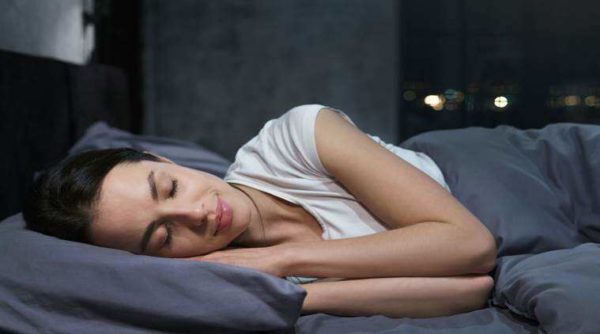How is your sleep? That’s a question I often ask my clients, and it’s a question I even ask myself. At least 50% of the time the answer I get back from anyone, myself included, is “not great.” There are so many things we know about the important of sleep, like how it’s good for both your physical and your mental health. Our bodies need to rest. Sleep is so important that even the CDC’s website offers sleep hygiene tips. What do I mean by sleep hygiene thought? Simply put, it’s the environments and behaviours we engage in that improve the quality of our sleep. Doing these things helps us fall asleep more easily, stay asleep more easily and fall back asleep if we do happen to wake up in the middle of the night. They aren’t a cure for poor sleep, but they can drastically improve it.
There are a lot of sleep hygiene tips. While this list may seem super intimidating, don’t fret, even making 1-2 adjustments to your sleep hygiene can have a huge impact on your sleep. Let’s start with bedtime itself:
1. Have a regular bed time and a regular wake up time – yes, this even includes weekends. Regular sleep patterns make it easier to fall asleep and to wake up. My “automatic alarm clock” goes off around the same time every morning.
2. Reduce your blue-light exposure before bed – basically try not to be on any electronics (phone, tablet, TV, computer) at least 30 minutes before bed, but preferably 60 minutes. This is the one most people struggle with the most, so even cutting it back to 15 minutes before bed and taking the TV out of your bedroom can help.
3. Use some relaxation techniques before bed – some people like to meditate (though I find it more of a wakeful activity), taking a bath can sometimes help. I highly recommend progressive muscle relaxation.
4. Remember that your bed is for 2 things only: sex and sleep – all other activity should be done outside of the bedroom.
5. Make sure your bedroom is a comfortable temperature, is dark and quiet – though some people are okay with light or music playing, most people get the best sleep in these conditions.
6. Invest in a comfortable mattress, pillow, and bedding – it will allow your body to rest more easily.
7. If it takes you more than 20 minutes to fall asleep, get up and do a relaxing activity in another room – there are lots of reasons why you may not be able to fall asleep right away. There’s no point laying in bed until you’re ready, and you can help yourself get ready with a relaxation technique.
In addition to bedtime tips, there are things we can do during the day to get a better sleep.
1. Limit napping – naps really don’t need to be longer than 20-30 minutes and it’s best if they’re completed by early afternoon.
2. Make sure you’re doing physical activity during the day and getting outside – daylight exposure improves sleep as does doing activity that makes our bodies tired.
3. That being said, try not to exercise too close to bed – ideally there is 2 hours between the end of your workout and your bedtime.
4. Same goes for eating – try not to have meals too late as they impact sleep. 2 hours between the end of your meal and your bedtime is recommended.
5. While we’re at it, let’s add caffeine to that list – studies show that caffeine intake after 2pm drastically affects sleep (it also affects anxiety)
6. Try to just sip water before bed – that way you are less likely to have to wake up in the
middle of the night to pee!
7. Alcohol and cigarettes make sleep worse – try to stop smoking and not drink too close to bedtime.
Again, no one is expected to make ALL of these changes, and certainly not at once. So, if you want to improve your sleep hygiene, maybe pick 1 or 2 areas you’re struggling with and set a SMART goal for it – Specific, Motivated by Values, Adaptive, Realistic, and Time-framed. And remember, if you’re struggling with sleep, registered clinical counselling can help with that!

